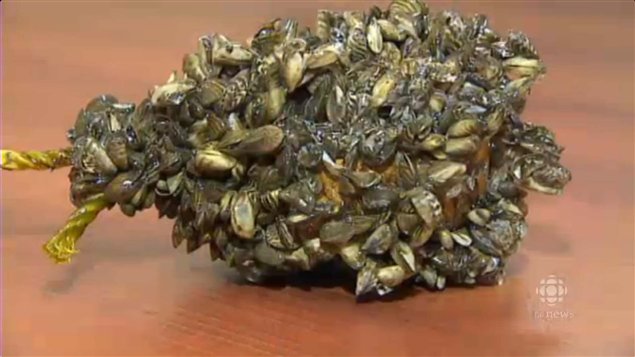They are small, but cause huge problems. Invasive zebra mussels have already caused major environmental change and a costly problem in lakes and rivers throughout eastern Canada and much of the US.
Last year they were discovered in Lake Winnipeg, and now the western province of Manitoba is going to try to eliminate them from four harbours in an experimental project. An aquatics expert however expresses concern
Eva Pip (PhD), is an aquatic toxicologist and professor of biology at the University of Winnipeg
ListenThe mollusc pest originated in Russia then spread to Europe, before spreading to other areas like Ireland, and North America.

It had been thought that the cold winters in the western province of Manitoba, would keep out the tiny molluscs, but it’s feared they are hardy and have survived the bitter cold.
Manitoba says its going to close four harbours, surrounding them with a silt-curtain and then dumping tonnes of liquid potash containing potassium into the water at the amount of 100 parts per million (100ppm). The four harbours will be closed from mid-May to mid June.
Manitoba officials are basing the trial on one test done in the US in a quarry.

This will be the first time such an effort has taken place in open water and will cost $500.000. They want to begin treatment of the four areas as soon as ice is off the lake.
Professor Pip says at 100ppm ratio, the potassium treatment will surely kill any native molluscs and snails, and very likely won’t eliminate the zebra mussels which have undoubtedly spread throughout the lake.
Manitoba Conservation Minister Gord Mackintosh agrees about the experimental treatment but adds, “While it can’t be certain, the only certainty that we do have at hand here is that if nothing is done, the situation will certainly get worse.”







For reasons beyond our control, and for an undetermined period of time, our comment section is now closed. However, our social networks remain open to your contributions.